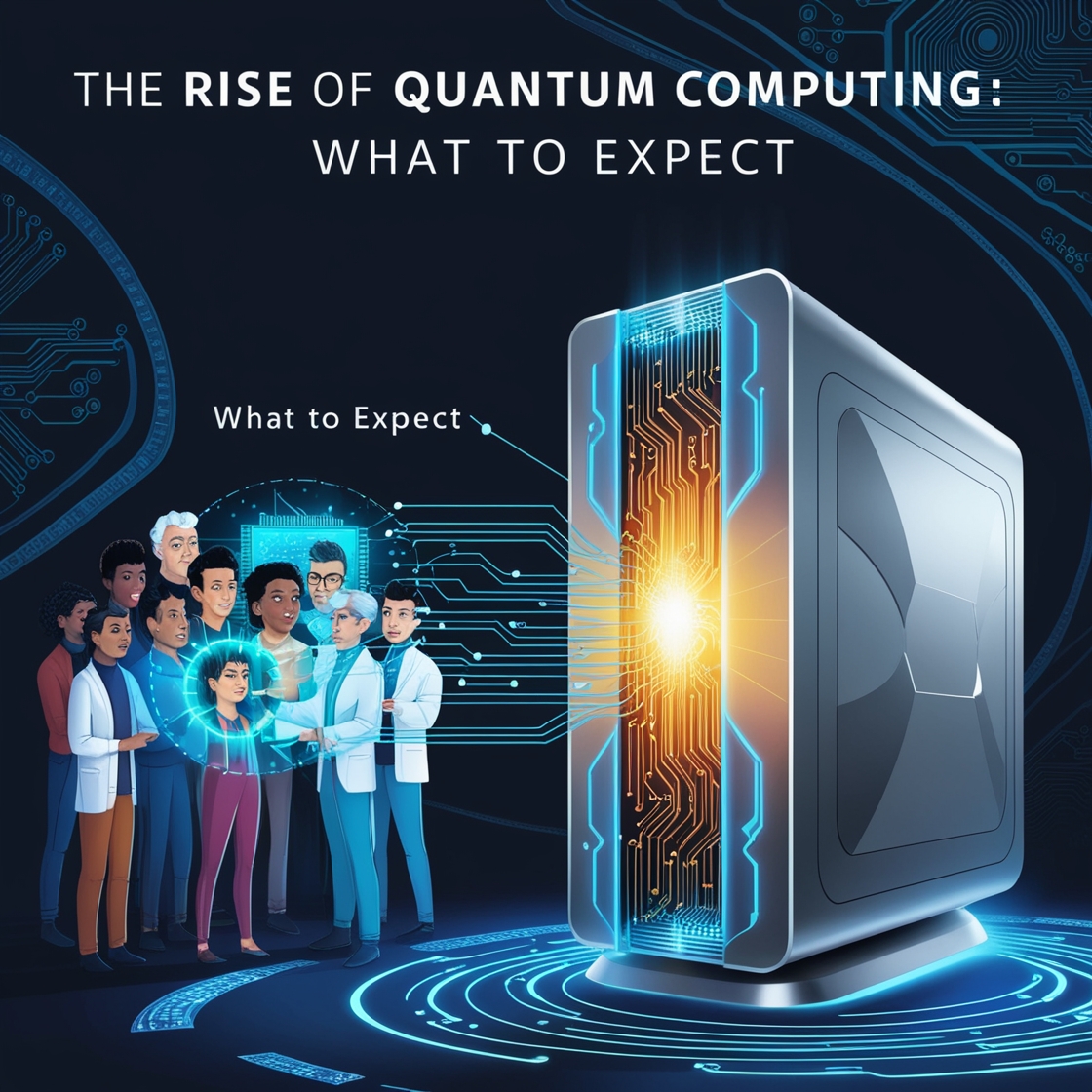Introduction to Quantum Computing
Quantum computing is no longer just a concept from science fiction; it’s rapidly becoming a reality that could reshape our technological landscape. But what exactly is quantum computing? In simple terms, it’s a type of computing that utilizes the principles of quantum mechanics to process information in fundamentally different ways than traditional computers. In this article, we’ll explore the rise of quantum computing, the exciting possibilities it presents, the challenges it faces, and what we can expect in the future.
What is Quantum Computing?
At its core, quantum computing harnesses the strange and fascinating behaviors of quantum physics, such as superposition and entanglement. While classical computers use bits as the smallest unit of data (0s and 1s), quantum computers use quantum bits, or qubits. This allows quantum computers to perform complex calculations at speeds far beyond those of classical computers.
The Evolution of Quantum Computing
Early Developments
The journey of quantum computing began in the 1980s, when physicists like Richard Feynman and David Deutsch proposed the idea of a quantum computer. They recognized that classical computers were not efficient enough to simulate quantum systems, paving the way for the exploration of quantum algorithms.
Key Milestones in Quantum Computing
The late 20th and early 21st centuries saw significant milestones, including Peter Shor’s algorithm for factoring large numbers and Lov Grover’s search algorithm, which demonstrated the potential advantages of quantum computing. These breakthroughs fueled interest and investment in the field.
Understanding the Basics of Quantum Mechanics
Quantum Bits (Qubits)
Unlike classical bits, qubits can exist in multiple states simultaneously due to superposition. This means a qubit can represent both 0 and 1 at the same time, exponentially increasing computational power.
Superposition and Entanglement
Superposition allows quantum computers to process a vast amount of possibilities simultaneously, while entanglement links qubits in ways that classical bits cannot be linked. When qubits are entangled, the state of one instantly influences the state of another, regardless of distance.
Current State of Quantum Computing
Major Players in Quantum Computing
The race for quantum supremacy is on, with tech giants and startups vying for leadership.
Google’s Quantum Initiative
In 2019, Google claimed to achieve “quantum supremacy” with its 53-qubit processor, Sycamore, completing a calculation in 200 seconds that would take classical computers thousands of years.
IBM’s Quantum Systems
IBM has been at the forefront, developing quantum systems and making them available via the cloud, encouraging collaboration and experimentation.
Startups and Their Contributions
Numerous startups, like Rigetti and IonQ, are also making strides in developing quantum hardware and software, pushing the boundaries of what’s possible.
Breakthroughs in Quantum Algorithms
Recent advances in quantum algorithms are unlocking new applications, from optimizing logistics to simulating chemical reactions, showcasing the potential of quantum computing to solve real-world problems.
Applications of Quantum Computing
Quantum Computing in Cryptography
One of the most talked-about applications is its potential to break current encryption methods. Quantum computers could factor large numbers efficiently, threatening traditional cryptography.
Quantum Computing in Medicine
In medicine, quantum computing holds the promise of accelerating drug discovery and personalized medicine through enhanced simulations of molecular interactions.
Quantum Computing in Material Science
Material science is another area ripe for quantum innovation, as quantum computers can model complex materials at the atomic level, leading to breakthroughs in everything from energy storage to superconductors.
Challenges Facing Quantum Computing
Technical Challenges
Despite its potential, quantum computing faces significant hurdles.
Error Rates and Stability
Qubits are notoriously fragile, with error rates being a major concern. Developing error correction techniques is crucial for building reliable quantum systems.
Scalability Issues
Scaling up the number of qubits while maintaining coherence and minimizing error rates is a significant challenge that researchers are actively addressing.
Ethical and Security Concerns
The rise of quantum computing also raises ethical questions, particularly regarding security. If quantum computers can break encryption, how do we protect sensitive information?
The Future of Quantum Computing
Predictions for the Next Decade
Experts predict that within the next decade, we could see practical quantum computers that can outperform classical computers in specific tasks, leading to revolutionary advancements in various fields.
How Quantum Computing Will Change Industries
From finance to healthcare, quantum computing will revolutionize industries by enabling faster data processing, improved simulations, and optimized decision-making.
Conclusion
In conclusion, quantum computing is on the brink of transforming our world, with its potential applications and breakthroughs capturing the imagination of scientists, businesses, and tech enthusiasts alike. While challenges remain, the advancements made thus far suggest that a quantum future is closer than we think.
FAQs
What is the main difference between classical and quantum computing?
The primary difference lies in how they process information. Classical computers use bits (0s and 1s), while quantum computers use qubits, which can represent multiple states simultaneously due to superposition.
Can quantum computers really break current encryption methods?
Yes, quantum computers have the potential to break many encryption methods currently in use, particularly those based on factoring large numbers.
What industries are likely to benefit most from quantum computing?
Industries such as finance, healthcare, and material science are expected to benefit significantly, with applications ranging from drug discovery to complex financial modeling.
How far are we from practical quantum computers?
While significant progress has been made, practical quantum computers are still in development. Experts estimate we could see them within the next decade.
What skills are needed to work in the field of quantum computing?
Skills in quantum mechanics, programming, and computer science are essential. Familiarity with linear algebra and algorithms also greatly helps in understanding quantum computing concepts.
